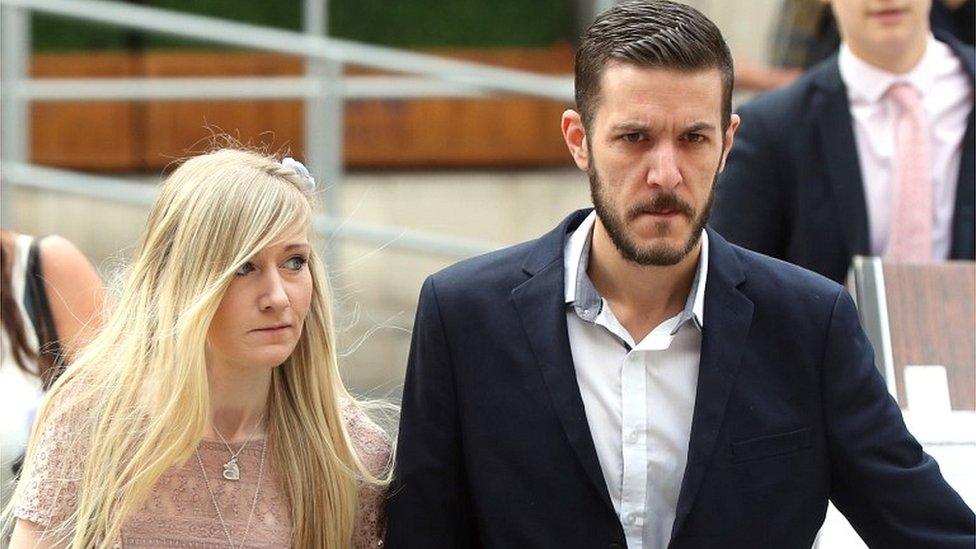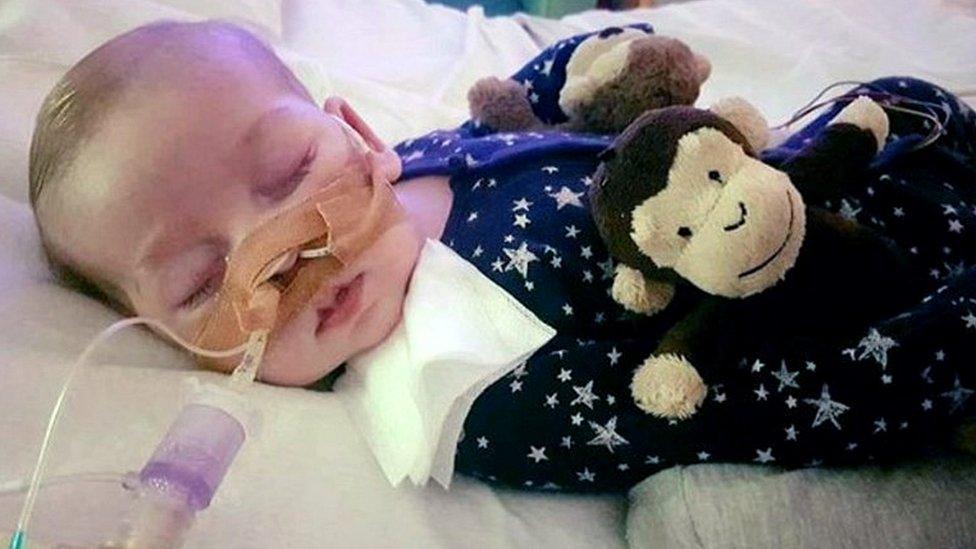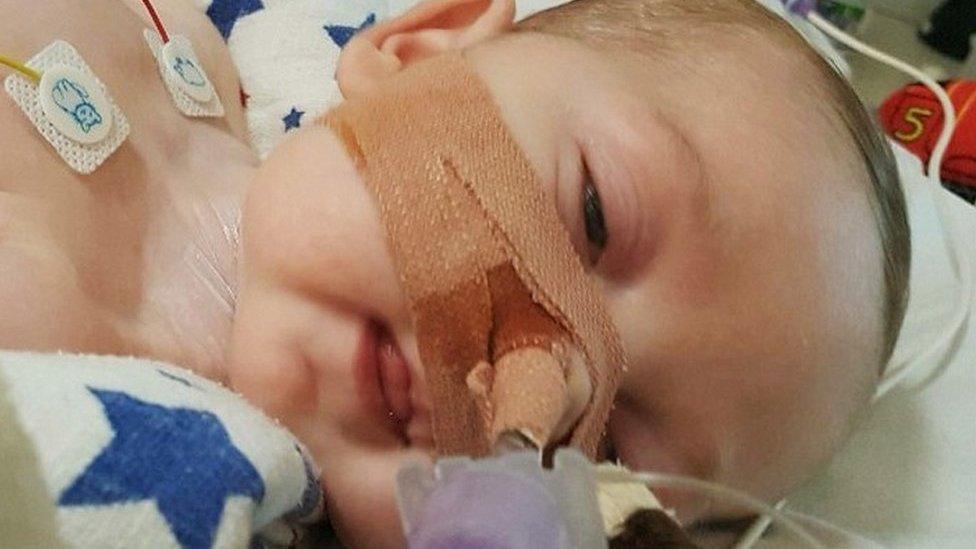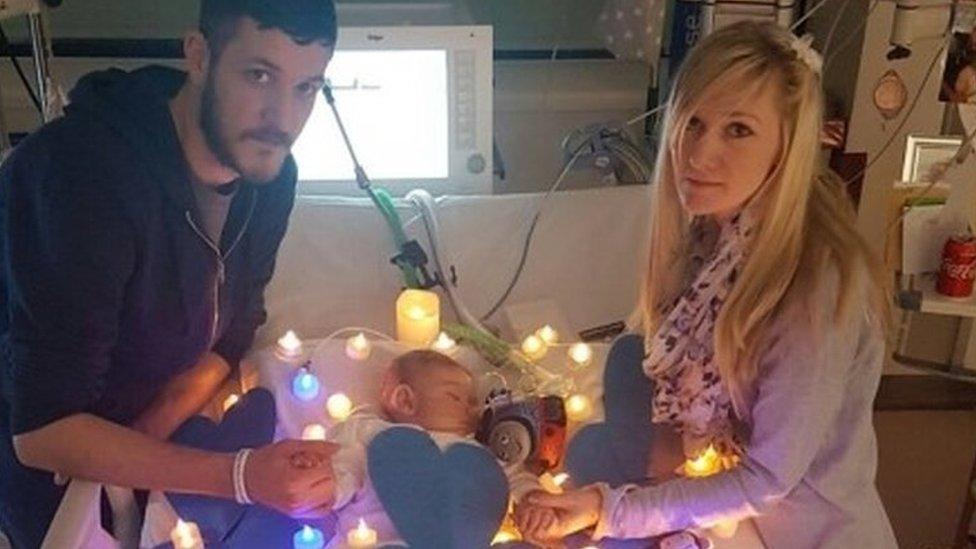Charlie Gard: Parents face 'backlash' over hospital threats
- Published

Connie Yates and Chris Gard want Charlie to receive an experimental therapy called nucleoside
The parents of Charlie Gard say they have been victims of a "backlash" after Great Ormond Street Hospital revealed staff had received death threats.
The hospital said, external police were called after families and staff were harassed.
The hospital and Charlie's parents are in a legal battle over continuing life support, external for the 11-month-old, who has a rare genetic disorder.
Connie Yates and Chris Gard said they had suffered "the most hurtful comments from the public".
In a statement, Mr Gard said: "Without the excellent care of the doctors at GOSH [Great Ormond Street Hospital] our son would not even be alive and not a day goes by when we don't remember that."
Ms Yates said: "We do not, and have not ever, condoned any threatening or abusive remarks towards any staff member at GOSH."
However, she criticised the hospital for not asking the public "not to say anything hurtful to us as well as their doctors and other members of staff".
Responding to Charlie's parents' statement on Sunday night, a spokesperson for GOSH said: "We are grateful for what Charlie's parents have said, and agree wholeheartedly that any abuse of anybody involved in this case is unacceptable.
"This is a heartbreaking time for Charlie's loving parents when they should be given every support."

Great Ormond Street Hospital said "unacceptable behaviour" had been recorded "within the hospital"
Charlie, who was born on 4 August 2016, has a form of mitochondrial disease, a condition that causes progressive muscle weakness and irreversible brain damage. His parents want to take him to the US for pioneering treatment.
They have lost a succession of court cases to overturn the hospital's decision that it would be in the best interest of Charlie to be allowed to die with dignity.
The latest court battle involves new testimony from a US neurologist who has visited Charlie in hospital to decide whether he should travel to America for therapy.
Charlie's parents want to take him to New York for experimental treatment, which the US doctor said might give him a 10% chance of improving his health.
The case is due back before a High Court judge on Monday.
- Published23 July 2017

- Published27 July 2017

- Published21 July 2017

- Published17 July 2017

- Published14 July 2017
